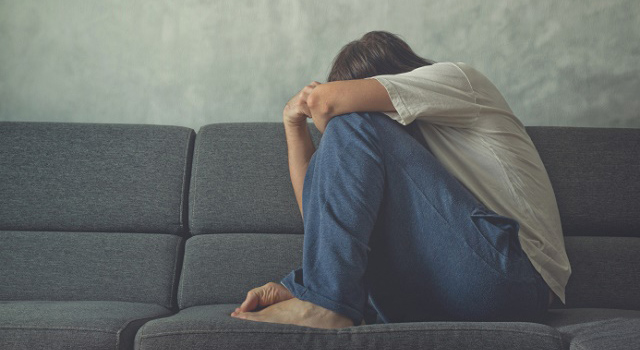For those who are addicted to opiates such as heroin, morphine and codeine, it can feel they are in the fight of their lives. Opiates are among the most addictive substances on the planet, and they can quickly take over the way the brain and body functions. For those people who attempt to quit opiates, the physical and psychological withdrawal symptoms they experience can be extremely uncomfortable and painful to a degree they will resume actively using opiate drugs in order to avoid the pain. Opiate withdrawal is not only painful to endure, it can also be life-threatening–especially if there are underlying medical conditions or if other drugs are being abused.
If you are addicted to opiates and have made the commitment to seek drug treatment, you no doubt are experiencing a great deal of anxiety and uncertainty. You may already know of the pain and discomfort that is involved in the withdrawal process, or you may have heard horror stories from others who have gone through treatment for their opiate addiction. While there may a some truth to what you feel and hear, most of the fear surrounding quitting opiates stems from misinformation and not having the knowledge of what to expect. Being fully educated and aware of what to expect–and especially knowing opiate withdrawal symptoms–will help make the process more comfortable and successful.
“Can’t I Just Quit Opiates On My Own?”
When you are considering drug treatment to address your opiate addiction, you will more than likely entertain thoughts at one point or another that you can quit on your own. To a certain degree, those thoughts are understandable. You feel that since you allowed yourself to become addicted to opiates in the first place, you should find ways to quit these drugs on your own. While quitting opiates cold turkey or through other means of self-detoxification may be appealing to you on the surface, doing so can pose serious risks to your health. Without the experienced and strict supervision of medical personnel, you can experience serious health complications–and you may return to active drug use.
What Can You Expect When You Quit Opiates
As stated at the beginning of this article, opiates significantly change the chemical structure of both the body and brain when abused over long periods of time. When you quit using opiates such as heroin, your body is not accustomed to the absence of opiates in your system. As a result, your body will try to correct itself–and you will start to experience withdrawal symptoms. The time frame between when you quit taking these substances and the first signs of opiate withdrawal symptoms are dependent on the amount of opiate drugs that have been taken, the frequency of use, the presence of other drugs of abuse in your body and if you have any underlying medical conditions that can impede your recovery.
You can start feeling opiate withdrawal symptoms within 12 hours, but normally it takes about 24 hours for symptoms to fully become present. Among the early opiate withdrawal symptoms that people can experience are the following:
- Muscle aches
- Anxiety
- Eyes tearing up uncontrollably
- Heat intolerance
- Insomnia
After the initial wave of opiate withdrawal symptoms has passed, you will experience a second wave of withdrawal symptoms that are more serious and painful. These symptoms will often start 48 hours after your last use of opiate drugs, and the severe discomfort they experience can not only create intense cravings for opiates. The most common symptoms associated with this second phase of opiate withdrawals can include the following:
- Diarrhea
- Abdominal cramping
- Nausea and vomiting
- Irregular and rapid heartbeat
- High blood pressure
Because of the severity of these withdrawal symptoms, you absolutely need to receive the proper medical detox care which is provided by experienced medical personnel at a drug treatment facility. As stated previously, if you try quitting opiates on your own, the health complications you can experience can become worse and you can further spiral downward in your addiction–and the chances of overdose dramatically increase.
How Long Does Withdrawal Last, and What Do I Need To Do Once I Get Stable?
When you are in the process of quitting opiates, you want to know how long does the withdrawal symptoms last before you starting feeling better. While the withdrawal process can vary depending on a number of factors, the worst of the withdrawal symptoms associated with opiate abuse are within the first week of opiate detox. Once those major withdrawal symptoms have passed, you will start feeling better and will slowly regain your health and energy. With improved physical health, many who undergo opiate detox may feel that the worst is over and they are “cured” of their addiction. These types of thoughts are dangerous in early recovery.
While opiate detox will help you navigate the dangers associated with opiate withdrawal, you are not out of the woods in regards to dealing with your opiate addiction. Chronic opiate use is highly reinforcing in nature and you still can feel the psychological pull of opiates weeks and months after you quit using these drugs.
Opiate detox is only the first step in the recovery process. Participation in an intensive inpatient drug treatment program is critical for long-term sobriety. Depending on your specific and unique needs, you will undergo a combination of individual and group therapy, life and coping skills training, holistic based treatments, and aftercare programming. It is during the treatment process that you will get the tools, support and encouragement you need to address their addiction and step confidently back into their normal lives as a recovering person.
Stop the Vicious Cycle of Opiate Addiction With Help From First Steps Recovery
If you or a loved one is struggling with opiate addiction and need help, First Steps Recovery features the treatment programs and compassionate care that will empower you to transform your life. Our addiction professionals utilize the best in traditional and holistic treatment therapies and techniques to create an individual treatment program that perfectly fits your needs. Call us today.









